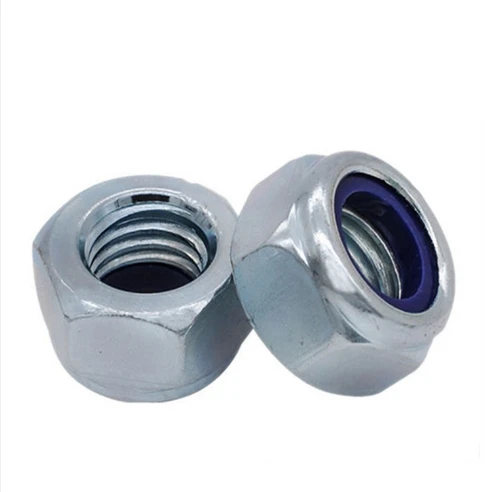Bicycle Fasteners Manufacturing Facilities and Their Impact on the Industry
Dec . 05, 2024 06:24 Back to list
Bicycle Fasteners Manufacturing Facilities and Their Impact on the Industry
The Role of Bike Bolts Factories in the Cycling Industry
In recent years, cycling has surged in popularity as a sustainable mode of transportation and an excellent recreational activity. As cities become more congested and individuals seek healthier lifestyles, the demand for bicycles continues to grow. However, the bicycle industry extends far beyond just frames and wheels; it encompasses a myriad of components that ensure bicycles function correctly and efficiently. Among these components, bike bolts play a crucial yet often overlooked role. This article explores the significance of bike bolts factories and their contributions to the cycling sector.
Importance of Bike Bolts
Bike bolts are essential fasteners that secure various parts of a bicycle, including the frame, handlebars, wheels, and seat. These bolts must be robust and durable, able to withstand the stresses and strains encountered during usage. High-quality bolts ensure the safety and reliability of bicycles, making them a critical component in manufacturing.
A quality bolt must possess specific properties high tensile strength, corrosion resistance, and appropriate weight. Despite their small size, bolts play a pivotal role in maintaining the integrity of a bicycle’s structure. The importance of using quality materials for bike bolts cannot be overstated, as they are directly linked to the performance and safety of the bike.
Manufacturing Process in Bike Bolts Factories
The manufacturing of bike bolts involves several sophisticated processes that require precision and quality control. Most bike bolts are made from high-strength steel, aluminum, or titanium, depending on the application. The production begins with the selection of raw materials, which are then subjected to processes such as cold forging, machining, heat treatment, and surface finishing.
Cold Forging This process involves shaping metal at room temperature, leading to improved strength and durability. It also reduces wastage of materials, making it an efficient choice for manufacturers.
Machining After forging, bolts are machined to achieve the desired dimensions and thread specifications. This ensures that every bolt meets industry standards and can be easily installed or replaced.
Heat Treatment To further enhance the mechanical properties, bolts undergo heat treatment. This process increases their tensile strength and resistance to fatigue, which is crucial for durability under varying conditions.
bike bolts factories

Surface Finishing Finally, bolts are coated with protective finishes such as zinc plating or anodizing. This step prevents corrosion and increases the lifespan of the bolts, crucial for bikes that face exposure to moisture and varied environmental conditions.
Challenges Faced by Bike Bolts Factories
Despite their importance, bike bolts factories face several challenges. The global supply chain for raw materials can be unpredictable, impacting production schedules. Additionally, strict regulations concerning quality and safety standards mean that factories must constantly innovate and adhere to high production benchmarks. The rise of eco-conscious consumers is also pushing manufacturers toward more sustainable practices, prompting them to explore alternative materials and eco-friendly processes.
Innovation is key in overcoming these challenges. Many factories are investing in advanced technologies, such as automation and computer-aided design, to improve efficiency and precision. These innovations not only enhance productivity but can also reduce waste and promote sustainability within the manufacturing process.
Future of Bike Bolts Manufacturing
As the cycling industry continues to evolve, so too does the demand for advanced bike bolts. With the rise of electric bikes, there is a need for specialized fasteners that can support heavier components and added functionality. Additionally, the growing trend of personalized bicycles means that factories must be adaptable, producing a wider variety of bolt designs to cater to niche markets.
Collaboration between bike manufacturers and bolt factories is essential for driving innovation and improving product quality. By working together, they can develop new materials and designs that enhance performance while ensuring safety and reliability.
Conclusion
In summary, bike bolts factories play an indispensable role in the cycling industry. Through advanced manufacturing processes and a focus on quality, these factories ensure that cyclists enjoy safe and reliable rides. As the demand for bicycles continues to grow, so too will the significance of quality bike bolts, highlighting the need for robust factories capable of meeting the challenges and opportunities of the future. Whether for casual riders or competitive athletes, the work done in these factories shapes the cycling experiences of millions around the world.
Latest news
-
High-Quality Panel Stud Bolt Reliable Panel Stud Bolt Factory & Suppliers
NewsJul.08,2025
-
High-Precision Fine Thread Locknuts Manufacturer & Supplier Custom Solutions
NewsJul.08,2025
-
PH Imperial Stud Bolt – High Strength Fasteners from Leading Supplier & Factory
NewsJul.07,2025
-
High-Quality Allen Wrench Bolts Leading Factory, Company & Suppliers
NewsJul.07,2025
-
Wholesale Ball Stud Bolt - High Quality Supplier & Factory Price Reliable Wholesale Ball Stud Bolt Company
NewsJul.06,2025
-
High-Strength Alloy Bolts Manufacturer & Supplier Quality Alloy Fasteners Factory
NewsJul.06,2025
